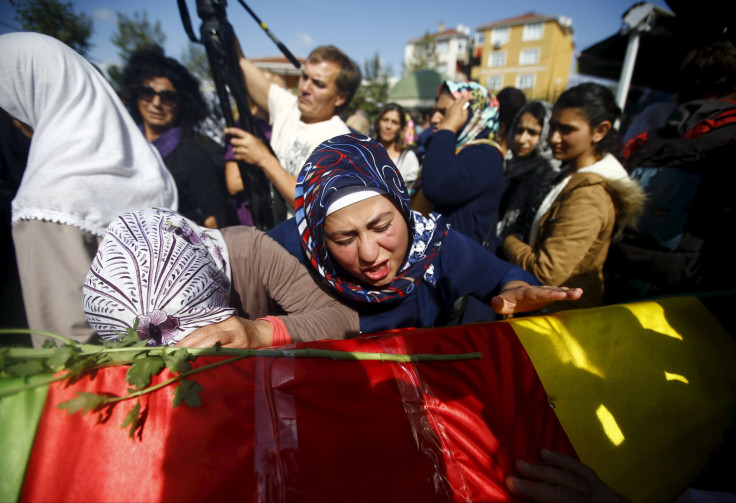Turkey Bombing-ISIS Links Confirmed? Brother Of Islamic State July Suicide Bomber Carried Out Deadly Ankara Attack

One of the two suicide bombers responsible for the deadliest terrorist attack in Turkish history has been identified as the brother of an Islamic State group supporter who staged a similar attack in southern Turkey in July, Hurriyet Daily News reported Wednesday. Both men responsible for Saturday's attack, which left 97 people dead, were on the radar of Turkish security forces and had connections to militants in Syria.
Police identified the killers as Yunus Emre Alagoz and Omer Deniz Dundar, using DNA from the blast site. Alagoz, the brother of the 20-year-old man responsible for the earlier suicide bombing in southern Turkey that killed 33 people, was reportedly already being sought by police as a member of an ISIS cell. Dundar was on a list of 21 suspected would-be suicide bombers.
Dundar’s father, who was identified by his initials M.D., said his son traveled to Syria in 2013, and returned to Turkey a year later, only to return again eight months later. M.D. said he previously reported his son’s activities to the police.
Two suicide bombers in #Ankara Massacre identified http://t.co/hqB6VlOqfP pic.twitter.com/iR3HRt7oPO
— Hurriyet Daily News (@HDNER) October 14, 2015
“I filed a complaint against my son. I said, ‘Put him in jail,’ but he was released after being questioned. Eight months later, he went to Syria,” he told Turkish daily Radikal, according to Hurriyet.
Saturday's attack targeted a peace rally in Ankara calling for an end to fighting between the militant Kurdistan Workers’ Party and the Turkish government. Government officials said there were four groups suspected in the attack, but focused on ISIS as the most likely suspect.
The twin explosions occurred as the country prepared for a highly contentious snap election in November. Turkey has seen a tenuous peace unravel since the July attack, which killed dozens of left-wing activists in the southern city of Suruc. Kurdish groups immediately blamed the attacks on the Turkish government’s failure to stem the spread of ISIS, and resumed a decades-long war against the Turkish state. The Ankara bombing has again brought the Turkish government's failure to protect leftist and pro-Kurdish groups from attack under heavy scrutiny.
© Copyright IBTimes 2025. All rights reserved.






















